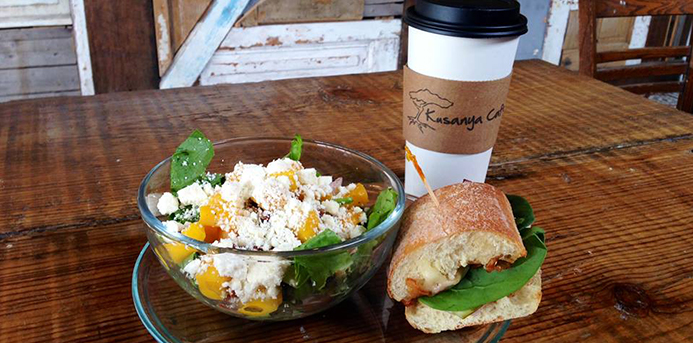Looking to find some hidden inspiration in the city of Chicago? From an Englewood cafe that strives to create a safe, creative space, to a South Side brunch hotspot that trains the next generation of restaurateurs, to a honey cooperative that is saving the honeybees one hive at a time, community spirit, creativity, and a can-do attitude shine … if you know where to look. Dig deeper and discover these three under-the-radar places that are making Chicago a better place for all.
Kusanya Cafe
825 W. 69th St., Chicago, 773-675-4758
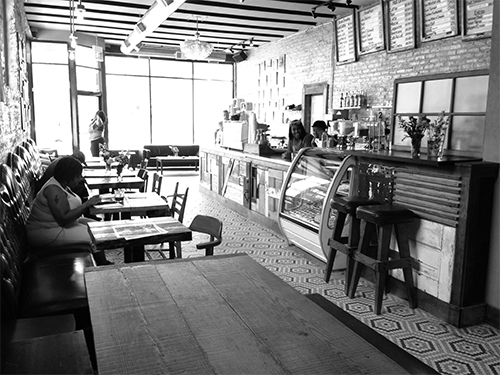
Most news reports associate Chicago’s Englewood neighborhood with violence. Yet despite so much sadness, hope still grows in Englewood, and Kusanya Cafe, a rustic-chic nonprofit coffee shop, roastery, and gallery housed in a 100-plus-year-old-building on West 69th, offers a sense of community, a slice of peace, and a whole lotta love with every cup of joe served. Kusanya Cafe is a sit-and-stay-awhile, “for-here-mug” kind of place. Prepare to go beyond the headlines and have your preconceived opinions and/or fears surrounding Englewood shattered as you walk through the door.
Phil Sipka and some of his Englewood neighbors opened the small cafe in 2013 with one goal in mind: to be vulnerable while creating a safe space for community building. They named it Kusanya, a Swahili word that means “to gather.” You won’t find any security guards or gates, just a beautiful, comfortable space that invites you to linger a little longer over coffee and delicious sandwiches. Paintings from local artists line the exposed brick walls.
Kusanya is home to a variety of free, community-driven arts, culture, and educational events, including Saturday morning yoga, a farmers market on the first and third Wednesdays of each month from 4-6 p.m., and an open mic on second Saturdays featuring storytellers from around the neighborhood and across the city.
The Parrot Cage
7059 S. South Shore Drive, Chicago, 773-602-5333
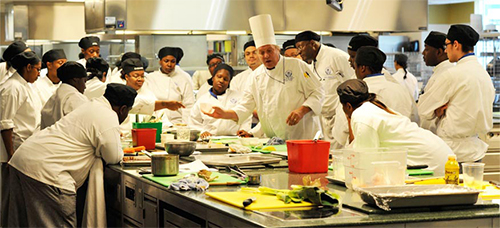
It’s a scene straight out of “The Great Gatsby”: a grand, Mediterranean Revival clubhouse situated between an idyllic stretch of beachfront and the lush greenery of a golf course, packed with ladies and gents sipping champagne before a sweeping vista of sparkling Lake Michigan. It’s a slice of South Side paradise that takes place every weekend at the Parrot Cage, a gem of a restaurant set within the historic South Shore Cultural Center.
The staff here goes above and beyond, sometimes with a touch of the nerves and always eager to please even the most discerning diners: That’s because the entire team that runs the Parrot Cage — from the wait staff to the cooks in the kitchen — are students-in-training at the Washburne Culinary Institute, one of the oldest, city-college-based culinary schools in the nation.
Students at this affordable culinary school learn the skills they need to succeed in the food and dining biz. Thanks to an A+ in enthusiasm, creativity, and exceptional culinary training, the restaurant has even earned the industry’s prestigious Zagat rating of “excellent or better” for three consecutive years and the Sunday brunch has repeatedly earned the OpenTable Diners Top Choice award. In addition to its prized Sunday brunch (11 a.m. to 3 p.m.), the Parrot Cage offers dinner Tuesday through Saturday, from 5-9 p.m.
Chicago Honey Co-op
2000 W. Carroll Ave., Chicago, 312-508-8142
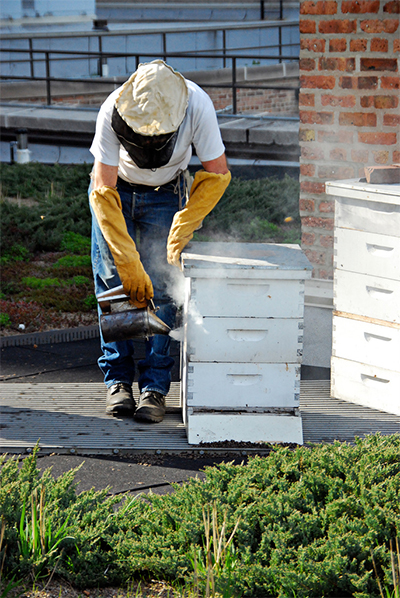
Chicago Honey Co-op strives to save the honeybees of Chicago … one hive at a time. This amazing Lawndale-based organization combines job training and beekeeping. Since 2004, more than 50 beehives buzz with bees at their three urban apiaries in Humboldt, Garfield, and Douglas parks, where a variety of flower and tree species coupled with diverse, highly concentrated nectars make for an intensely flavored, all-natural, delicious honey. In addition to producing and selling raw honey, this sweet co-op teaches beekeeping, trains hard-to-employ Chicagoans, and advocates for sustainable agriculture.
If you want to see the Chicago Honey Co-ops’ bees in action, head to one of their bee farms. Schulze & Burch Biscuit Company (1133 W. 35th St.) in Bridgeport is home to about 20 hives, and the green rooftop of Christy Webber Landscaping (2900 W. Ferdinand St.) hosts a handful of hives. Twelve hives are located in Back of the Yards near 51st and Racine and two hives call Patchwork Farms (2825 W. Chicago Ave.) home. If you’re lucky, you might see beekeepers at work dressed in their light-hued suits and screened hats, checking each hive’s “super” — vertical drawers where the bees store their honey.
If you really want to get up close and personal with the bees, Chicago Honey Co-op offers year-round courses in beekeeping.
Chicago Honey Co-op is a community resource that produces more than just amber waves of certified natural honey. As the number of native bees is seeing sharp declines, this co-op passes the beekeeping torch to budding urban apiculturists while also fostering community and saving the honeybees, one hive at a time.
If you’re worried about being carried away by a swarm of honeybees, you can also purchase Chicago Honey Co-op honey from the hive-free Green City Market, Chicago’s only year-round, sustainable farmers market. Located on the south end of Lincoln Park (1817 N. Clark St.) from May through October, this glorious, green market moves into the Peggy Notebaert Nature Museum (2430 N. Cannon Drive) from November through April.
More from Make It Better:
- 7 Ways to Donate Your Time or Resources to Nonprofits in Chicago This Month
- 14 Chicago Area Athletes to Watch in the 2018 Winter Olympics and Paralympics
- Join Our Better Giving Circle to Support Your Favorite Nonprofit and Enjoy an Exclusive Dinner
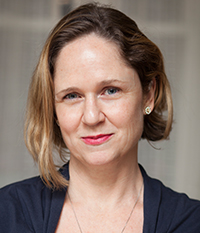
Amy Bizzarri is a Chicago-based freelance writer focused on food and travel. She has a keen interest in Chicago history and is the author of “111 Places in Chicago That You Must Not Miss” and “Discovering Vintage Chicago.” Amy is also a proud member of Shot@Life, a movement that works to ensure children around the globe have access to the vaccines they need.
